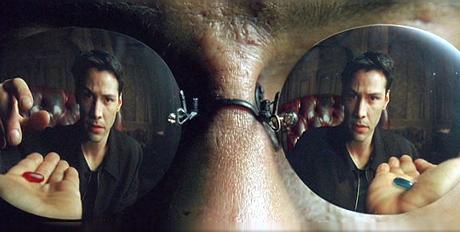
I would like to discuss attachments. I am taking about this concept in both mental and physical realms, because really dividing the two is fallacy. Your physical technique is an expression of your mind.
I have been doing a whole lot of judo free style randori practice lately. For a while I was playing the vice like grips of judo jacket wrestling, and it felt they were a weakness. They anchored me to one spot rather than setting me free. They cemented a particular relationship, rather than letting new relationships develop. A grip leads my technique down a path of force to control and fight, rather than soft technique to balance breaks.

I have been pouring over the teachings of the Bodhidharma lately, and I have been seeing the conflicts in judo as a perfect Buddhist metaphor.
What Is Attachment?
"In order for there to be attachment, you need two things -- the attacher, and the thing to which the attacher is attached. In other words, "attachment" requires self-reference, and it requires seeing the object of attachment as separate from oneself.
The Buddha taught that seeing oneself and everything else this way is a delusion. Further, it is a delusion that is the deepest cause of our unhappiness. It is because we mistakenly see ourselves as separate from everything else that we "attach."
Zen teacher John Daido Loori said,
"[A]ccording to the Buddhist point of view, nonattachment is exactly the opposite of separation. You need two things in order to have attachment: the thing you’re attaching to, and the person who’s attaching. In nonattachment, on the other hand, there’s unity. There’s unity because there’s nothing to attach to. If you have unified with the whole universe, there’s nothing outside of you, so the notion of attachment becomes absurd. Who will attach to what?"(1)

"In order to catch spider monkeys, hunters in South America simply walk through the jungle and drop heavy containers on the ground. These containers have very a narrow top and a wider bottom. Inside the containers the hunters drop a special kind of nut which is particularly attractive to the monkeys. Sometime later, the spider monkeys come down from the tops of the trees, smell the nut, but the tops of the containers are so narrow they have a tight squeeze to get their hands inside. Once they grab the nut at the bottom, their fist is too large to remove if through the opening. And the container is too heavy for them to carry.
So instead of letting go of the nut, the monkeys just sit there until the hunters come back, pick them up, and throw them in a bag. The spider monkeys are not prepared to let go of a small nut in order to gain their freedom." (2)

Everyone from monkeys to the great teachers of Zen agree that attachments lead to problems. How often doe the monkey-judo man form a relationship through grip and attachment to an idea of technique? How often does monkey-judo man follow this attachment, even after it becomes a trap? Even the monkey-aikido man will follow technique way after it has failed because they are simply holding on to that attachment. Monkey-judo man simply refuses to let go of the jacket in order to gain freedom.
Perhaps the Buddha-Judo man has done some more of the internal work and sees those attachments lead to suffering...or at least traps. It seems to me that the highest caliber budo is not accomplished through the efforts of a tense attachment, rather the purest budo is an expression of a mind and body moving in freedom and accommodating to circumstance.
The Tai Chi Classics say chi moves in the spirit of the ever changing circle. I say, free your minds and bodies from negative relationships and attachments and find freedom in motion and thought!

Sources
(1) http://buddhism.about.com/od/basicbuddhistteachings/a/attachment.htm
(2) http://reilly.typepad.com/cameronreilly/2006/03/the_spider_monk.html







Eric,
ReplyDeleteThis is IMHO probably your best blog to date.
Ikei,
Jeff